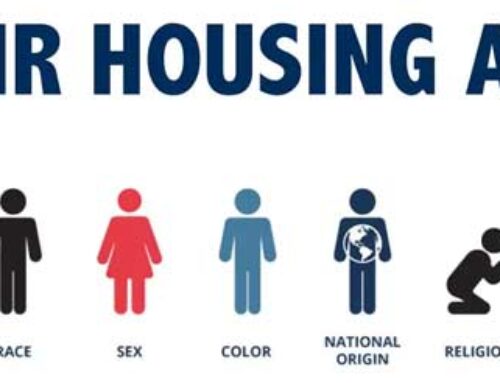By Kathleen Willcox
Jan 10, 2022

Many people might picture homeownership as an event that happens only after two people get married and start a financial partnership. Some mortgages are still structured to reflect that idea. But nowadays, more single people without children are investing in their own homes.
In fact, the share of U.S. single homeowners is the highest it’s been in more than 100 years, according to an analysis of U.S. Census Bureau data by Haus.
Given rising home costs, the reduced buying power that comes with a single income, and the way mortgages are structured, becoming a homeowner as a single person might not seem easy. But it is entirely doable.
We reached out to real estate and financial professionals for advice on how a single person can buy a home within their budget. Read on for their tips and insights.
Tip No. 1: Consider government-insured loans
Even if it’s substantial, having one income to pay the bills inherently increases the risk for a lender.
“A single person can’t rely on a partner’s income for a mortgage, so if something major happens—like a medical emergency or a significant reduction in income—it will be difficult to make mortgage payments,” says Kris Lippi, a licensed real estate broker in Connecticut. “It can also be difficult to make that initial down payment. Government-insured loans are a good option and have a lower down payment requirement, too.”
One example is the mortgage program run by the Federal Housing Administration (FHA). While a conventional mortgage requires a 20% down payment, an FHA loan requires only 3.5%.
In addition, veterans should consider a VA Loan, backed by the Department of Veterans Affairs, which can help borrowers get lower interest rates with no required down payment or monthly mortgage insurance premiums.
Tip No. 2: Don’t think (too) big
Consider how much space you need as a single homeowner without a partner or children.
“Look for smaller houses with one or two bedrooms and one bathroom,” advises Martin Orefice, CEO of Rent To Own Labs. “You’ll end up with a much lower mortgage that way.”
Having a more manageable space will also reduce all your costs and bills.
Tip No. 3: Improve your credit score
Focus on your credit before you try to get a mortgage.
“If you’re in a lot of debt, it will be virtually impossible to secure a mortgage,” says Michael Dean, a real estate broker and co-founder of Pool Research.
For most loans, you’ll need a credit score of around 600, but a score of 700 or higher will help you secure lower interest rates. According to the Federal Reserve, 90% of mortgages in 2019 were taken out by people with a credit score that was higher than 647, and 75% of mortgages were taken out by people with a score of over 700. The median credit score was 759.
You’ll need to pay off all significant outstanding debts and pay your credit cards and bills on time to raise your credit score. (Payment history makes up about a third of your credit score).
Remember, higher scores also mean you’ll be able to make a lower down payment, which may be necessary if you are to snag your dream home.
Tip No. 4: Beware of big mortgages
Just because a lender will approve you for a larger mortgage doesn’t mean you should dive in and accept it. Remember, you alone will be carrying the nut, so be extra cautious about the size of your monthly mortgage payments.
You should think carefully before opting for an adjustable-rate mortgage (ARM). ARMs begin at a fixed interest rate that is usually lower than a comparable fixed-rate mortgage. But an ARM rate will change after three, five, seven, or 10 years, and the rate will adjust based on market indexes. Sometimes this means your initially low ARM rate will shoot up and raise your monthly mortgage payment.
“If you go with a fixed mortgage rate, you’ll be able to plan ahead and budget your spending accordingly,” says Dean. “You need to know where you are putting your money and what is expected in terms of payments if you are the only one paying the bills.”
Tip No. 5: Consider a co-signer
If bad credit or other issues are interfering with your dream of owning a home, consider adding a co-purchaser to your mortgage, whether or not they intend to live with you.
Co-signing or getting a loan is a great option, says David Aylor, the founder and CEO of David Aylor Law Offices in Charleston, S.C.
“If you have family members that can lend you cash to make your down payment, it can be worthwhile,” adds Aylor. “But you should only take that route if you come to a reasonable agreement, crunch the numbers, and determine that you’ll all be able to make the budget work.”
Tip 6: Make a comfortable down payment
Down payments can be a tricky business. Saving for one can be difficult, but if you can put down a substantial down payment, your monthly bills will be lower, and you’ll have a chunk of equity in your home.
“You’ll be footing 100% of the monthly payments yourself, and the bigger your down payment, the lower your monthly bills will be,” says John Li, co-founder and technical lead of New York’s Fig Loans. “You don’t want to become ‘house poor’ and struggle from month to month to meet your steep payments.”
Source- https://www.realtor.com/advice/buy/how-to-become-head-of-a-household-home-buying-and-mortgage-guide-for-singles/






